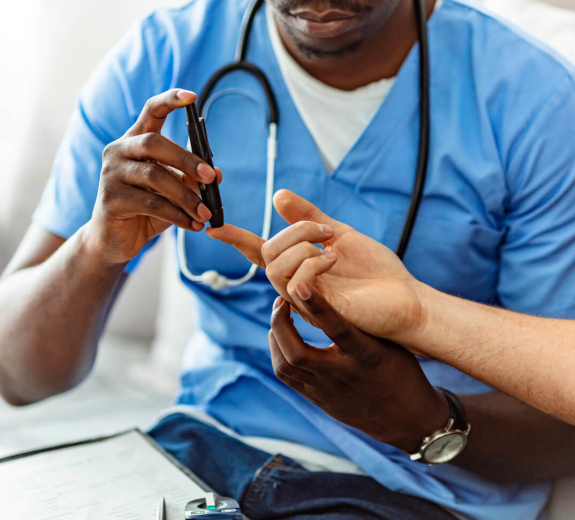
Working To Eliminate Type 1 Diabetes
Prevention
Family members of someone with type 1 diabetes have 15 times the chance of developing the disease relative to the general population. A simple blood test for these relatives may detect autoantibodies that show an increased risk years before symptoms appear. Family members may be tested at no cost through a study called TrialNet Pathway to Prevention. Researchers will closely monitor participants identified to be at risk to help in early diagnosis and management of the disease. People at risk may be eligible to enter a prevention trial. Currently, three therapies are being tested to see if they can stop or slow down the immune system reaction that destroys insulin-making cells.
Intervention and Reversal
Studies through TrialNet and the Immune Tolerance Network (ITN) are looking at how to extend people’s ability to produce insulin when they are newly diagnosed with type 1 diabetes. Researchers have found at the time of diagnosis that many people continue to produce small amounts of insulin. Since even small amounts of natural insulin production can decrease the long-term effects of diabetes and improve short-term clinical management, scientists search for ways to keep these remaining cells producing insulin. Researchers are also launching studies for patients with longer-term diabetes and investigating an artificial pancreas to help people better manage their disease.
Biobanks
BRI uses biobanks to better understand biomarkers associated with the progression of type 1 diabetes and to identify targets for new therapies. A biobank consists of blood and tissue samples linked to medical and demographic information collected from people with a specific disease or condition. BRI maintains one of the world’s most robust biobanks for the study of autoimmune disorders including type 1 diabetes. BRI also manages several international biobanks for type 1 diabetes and shares information with scientists internationally to accelerate discoveries.
Personalized Medicine
In clinical trials, not all individuals respond in the same way to particular immunological therapies. In the laboratory, BRI scientists are investigating the molecular mechanisms of the type 1 diabetes autoimmune response, and of immune interactions with each therapy, to better understand disease progression and uncover new approaches to treatment. These studies also are developing methods to better predict a person’s disease risk and provide earlier diagnoses so that patients can begin treatments sooner, at a time when more beta cells remain and more of the insulin production function can be saved. Teams of BRI investigators, led by Alice Long, PhD, and Peter Linsley, PhD, are developing “discovery pipelines” for analysis of clinical trial samples to better understand the way different individuals respond to different therapies. This information is a cornerstone for tailoring therapy specifically to individuals — the right treatment for the right person at the right time.
To learn more about risk testing, joining a biobank and clinical trials, please call 800-888-4187 or visit Diabetes Clinical Research.
Immuno-what? Hear the latest from BRI
Keep up to date on our latest research, new clinical trials and exciting publications.


